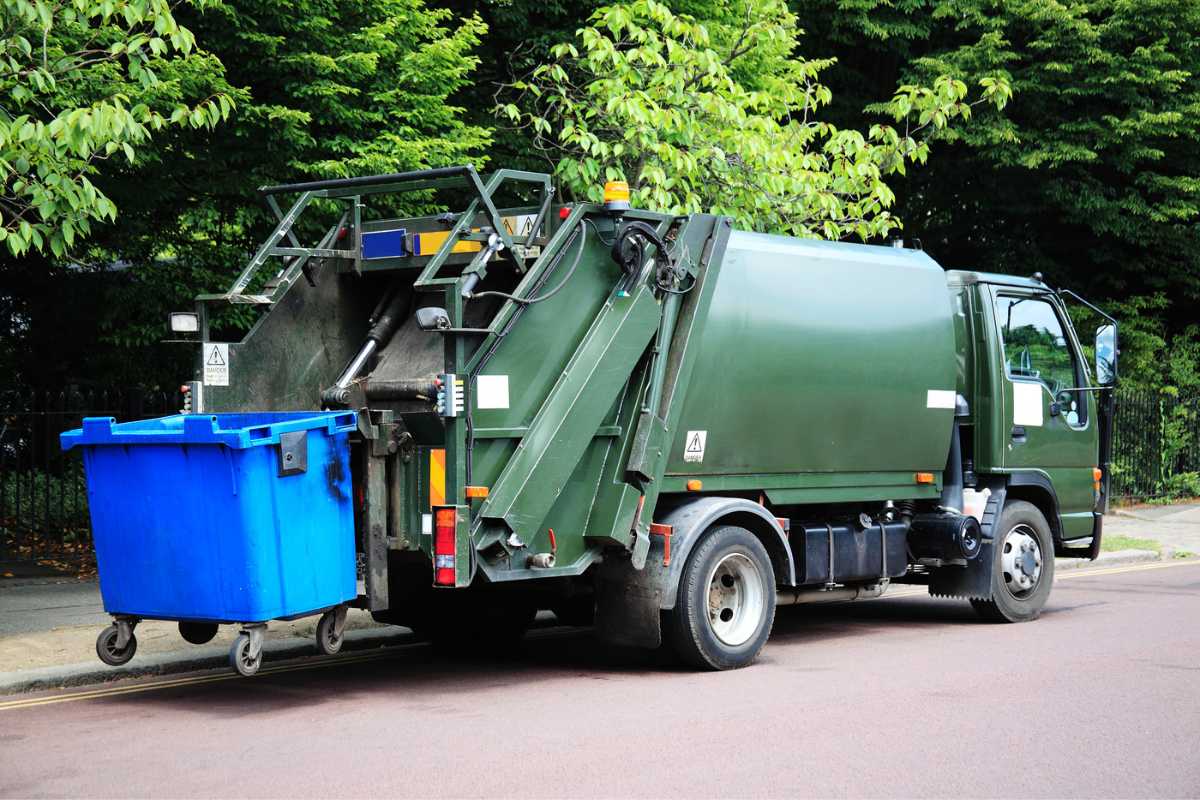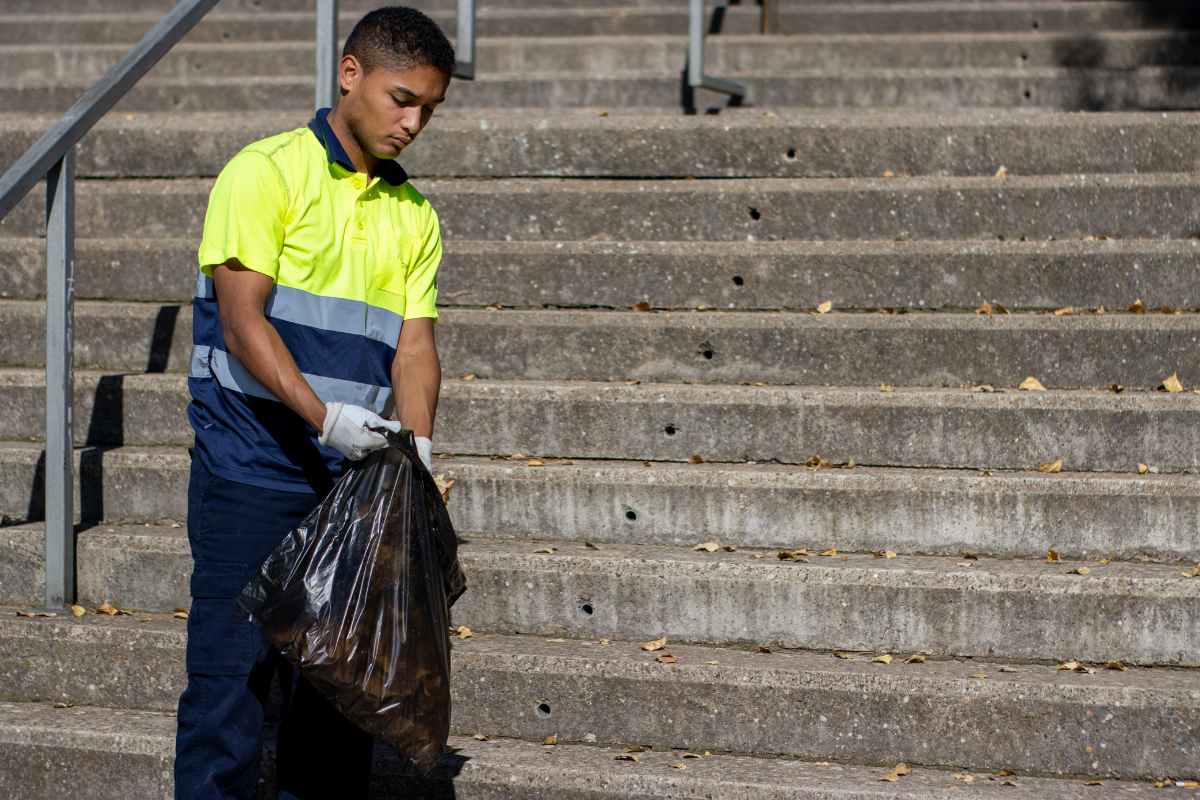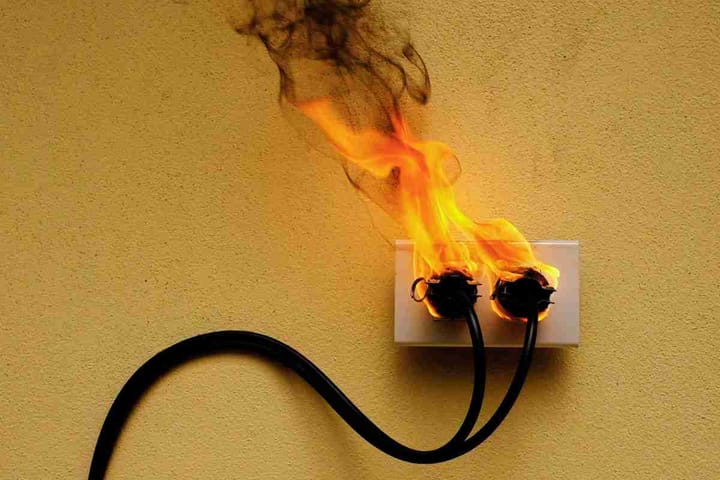Ultimate Guide to Choosing the Best Residential Trash Pickup Service
Choosing the right trash pickup service is key to a sustainable lifestyle. This guide helps you find the best fit for convenience and the planet.

Let's face it, dealing with trash isn't glamorous. Yet, in a world striving for sustainability, choosing the right residential trash pickup service is more than just convenience; it's a responsibility.
Imagine a life free from overflowing bins, missed pickups, and environmental guilt. This guide will lead you down that path, helping you understand your needs, compare available services, and negotiate the best deal for your budget and the planet. Whether you're in a bustling city or a serene rural landscape, we'll equip you with the knowledge to navigate the ever-evolving world of waste management.
- Knowing Your Needs
Before diving into the pool of service providers, taking a moment to understand your household's waste profile is crucial. This self-reflection sets the stage for choosing a service that perfectly fits your needs, avoiding unnecessary costs and frustration down the line.
- Household Size and Waste Generation
Think about your household size and activity level. A single person generates less waste than a family of five, impacting bin size and pickup frequency requirements. If you're moving or looking for trash service in a new home, consider any upcoming changes, like expecting a baby or hosting long-term guests, to anticipate future needs.
- Specific Waste Types
Do you have a green thumb that generates yard trimmings? Do you regularly handle electronics or hazardous materials? Different services cater to specific waste types. Identifying your unique needs ensures you choose a provider equipped to handle everything you throw their way—responsibly.
- Recycling and Composting Needs
Are you passionate about recycling and composting? Look for services with robust programs and clear guidelines. Assess your own commitment to these practices and consider if separate bins or collection services are necessary. Remember, the more you divert from landfills, the better for the environment.
- Budget Considerations
Let's be honest, budget matters. Research average service costs in your area and consider additional fees for specific waste types or extra bins. Don't forget to factor in the potential environmental cost of choosing a cheap service with poor recycling practices. Striking a balance between affordability and responsibility is key.
Remember, understanding your needs is the foundation for a smooth and sustainable waste management journey. So, before getting swept away by service brochures, take a moment to introspect and craft a waste-wise plan that works for you and your wallet with the right trash pickup services.
- Researching Service Providers
Now you know your waste management needs, it's time to explore the service landscape. But with so many options, where do you even begin?
- Local vs. National Companies
Consider who you want to support. Local companies often offer personalized service and familiarity with your specific area's regulations. National companies might boast wider coverage and competitive pricing, but their understanding of local nuances might be lacking. Evaluate your priorities and consider contacting both types for quotes.

- Online Directories and Review Platforms
The internet is your friend. Utilize online directories that list and compare residential trash pickup services in your area. These platforms can help you narrow down your options based on location, services offered, and even customer reviews.
When reading online reviews, consider the overall sentiment and look for recurring themes, both positive and negative. Remember, one bad review shouldn't automatically disqualify a service, but consistent patterns can be insightful.
- Asking Neighbors and Friends for Recommendations
Word-of-mouth can be powerful. Chat with your neighbors or friends who share similar waste-generation habits. Their firsthand experiences and recommendations can provide valuable insights into the reliability, responsiveness, and overall satisfaction with different providers in your area.
By utilizing online resources and tapping into your community network, you'll be well-equipped to choose a service provider that aligns with your values and waste management needs.
- Comparing Services
When choosing a residential trash pickup service, it's important to compare several key factors to ensure you select the one that best fits your needs. Here's what to consider:
- Pickup Frequency and Days
Look into how often the service will collect your trash. Some companies offer weekly pickups, while others might provide more frequent options or flexible schedules. Also, check which days of the week the pickups occur to make sure they align with your availability.
- Bin Sizes and Limitations
Trash bins come in various sizes, and the right size for you will depend on your household's waste production. Ensure the service offers a bin that suits your needs. Also, be aware of any limitations on what you can throw away, as some services have restrictions on certain types of waste.
- Additional Services Offered
Some trash pickup services offer more than just regular waste collection. They might also provide yard waste pickup, which is handy if you have a garden or do a lot of outdoor work. Bulky item removal is another useful service for disposing of large items like furniture or appliances without hassle.
- Recycling and Composting Programs
If you're environmentally conscious, look for a service that includes recycling and composting programs. These programs help reduce waste by diverting recyclables and organic materials from landfills, turning them into new products or compost.
Exploring these details allows you to identify a trash pickup service that complements your waste management requirements, seamlessly integrates with your weekly schedule, and enhances your environmental efforts.
- Pricing and Billing Structure
Now that you've narrowed down your potential service providers, let's explore pricing and billing structures. Understanding these intricacies will ensure you choose a service that fits your budget without hidden surprises down the line.
- Fixed Charges vs. Pay-As-You-Throw
Most services offer two main pricing models: monthly fees or per-bin charges. Monthly fees provide a predictable cost regardless of how much waste you generate, while per-bin charges encourage waste reduction by linking your bill to the number of bins you use. Consider your waste habits and environmental goals to determine which system suits you best.
- Additional Fees for Specific Waste Types
Be mindful of potential add-on charges for specific waste types like yard trimmings, electronics, or construction debris. Some services include these in their base price, while others charge extra. If you regularly dispose of such items, factor these fees into your overall cost comparison.
- Contract Terms and Cancellation Policies
Contract terms and cancellation policies vary significantly. Some services offer month-to-month flexibility, while others require year-long commitments. Consider your preferences and potential changes in your waste generation before signing on the dotted line. Carefully review cancellation fees and termination clauses to avoid any unpleasant surprises if you need to switch providers down the road.
Transparency is key—don't hesitate to ask for detailed breakdowns of costs and inquire about potential discounts or promotional offers before making your final decision.
- Customer Service
Reliable trash service goes beyond just emptying your bins. It's about having a responsive and helpful team in your corner when questions arise or issues pop up. So, before making a decision, investigate the provider's customer service practices.
Imagine overflowing bins on a holiday weekend and needing immediate assistance. Does the company offer accessible support channels like an easy-to-navigate website, a responsive phone line, or even live chat options? Can you expect prompt replies and solutions, or will you be left waiting in frustration? Assessing the availability and efficiency of their customer support is crucial.
Communication shouldn't feel like a chore. Look for providers that prioritize clear and transparent communication. Are their service updates easily accessible? Do they offer informative FAQs and readily available resources? Good communication breeds trust and empowers you to manage your waste effectively.
Finally, consider the convenience of online account management. Can you easily pay bills, modify pickup schedules, or track service requests online? A user-friendly online platform can save you time and effort, adding another layer of satisfaction to your service experience.
- Environmental Practices
In today's world, choosing a trash service isn't just about convenience; it's about making a conscious choice for the planet. So, how do you identify providers who prioritize sustainability?
Start by researching their landfill diversion rates. This metric reveals how much waste they divert from landfills through recycling, composting, or other alternative disposal methods. Higher rates indicate a stronger commitment to minimizing their environmental footprint.
Next, investigate their recycling facilities and partnerships. Do they have access to advanced sorting and processing facilities? Do they partner with organizations dedicated to responsible waste management and resource recovery? These factors not only ensure your recyclables are handled responsibly but also contribute to broader sustainability efforts.
Finally, explore their sustainability initiatives. Do they invest in renewable energy sources or implement fuel-efficient collection vehicles? Are they involved in community education programs to promote waste reduction and recycling? Such initiatives showcase their commitment to going beyond the minimum and actively driving positive environmental change.
Conclusion
Choosing the right residential trash pickup service isn't just about emptying your bins. It's about aligning your values with a responsible partner, minimizing your environmental impact, and contributing to a more sustainable future.
Remember, informed decisions lead to responsible actions. Explore your local recycling and composting programs, educate yourself about waste reduction strategies, and actively participate in community initiatives. Every step, big or small, collectively creates a ripple effect toward a healthier planet.




Comments ()